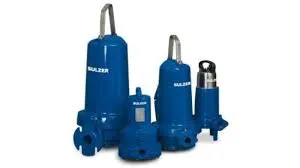English
- Afrikaans
- Albanian
- Amharic
- Arabic
- Armenian
- Azerbaijani
- Basque
- Belarusian
- Bengali
- Bosnian
- Bulgarian
- Catalan
- Cebuano
- Corsican
- Croatian
- Czech
- Danish
- Dutch
- English
- Esperanto
- Estonian
- Finnish
- French
- Frisian
- Galician
- Georgian
- German
- Greek
- Gujarati
- Haitian Creole
- hausa
- hawaiian
- Hebrew
- Hindi
- Miao
- Hungarian
- Icelandic
- igbo
- Indonesian
- irish
- Italian
- Japanese
- Javanese
- Kannada
- kazakh
- Khmer
- Rwandese
- Korean
- Kurdish
- Kyrgyz
- Lao
- Latin
- Latvian
- Lithuanian
- Luxembourgish
- Macedonian
- Malgashi
- Malay
- Malayalam
- Maltese
- Maori
- Marathi
- Mongolian
- Myanmar
- Nepali
- Norwegian
- Norwegian
- Occitan
- Pashto
- Persian
- Polish
- Portuguese
- Punjabi
- Romanian
- Russian
- Samoan
- Scottish Gaelic
- Serbian
- Sesotho
- Shona
- Sindhi
- Sinhala
- Slovak
- Slovenian
- Somali
- Spanish
- Sundanese
- Swahili
- Swedish
- Tagalog
- Tajik
- Tamil
- Tatar
- Telugu
- Thai
- Turkish
- Turkmen
- Ukrainian
- Urdu
- Uighur
- Uzbek
- Vietnamese
- Welsh
- Bantu
- Yiddish
- Yoruba
- Zulu
Telephone: +86 13120555503
Email: frank@cypump.com
Oct . 05, 2024 14:55 Back to list
'hydraulic pump for slurry tanker operation'
The Importance of Hydraulic Pumps in Slurry Tanker Operations
Hydraulic pumps play a crucial role in the operation of slurry tankers, which are essential in various industries such as agriculture, mining, and waste management. These pumps are specifically designed to transport viscous fluids containing solids, and their efficiency directly impacts both productivity and operational costs.
Understanding Slurry Tankers
Slurry tankers are large vehicles used for the transportation of slurry—a mixture of solids and liquids, often used for spreading fertilizers in agriculture, managing wastewater in treatment facilities, or transporting mineral slurries in mining operations. The ability to effectively move this mixture is critical, as it involves challenging materials that can easily settle or clog conventional systems. This is where hydraulic pumps shine.
Hydraulic Pump Mechanisms
Hydraulic pumps work by converting mechanical energy into hydraulic energy, providing the necessary force to move slurry through pipelines and into the tanker. They utilize hydraulic fluid, which is pressurized to create the required power for pushing solid-liquid mixtures. The design of hydraulic pumps allows them to handle the high viscosity and density of slurry, ensuring a smooth and efficient transfer.
There are several types of hydraulic pumps commonly used in slurry tanker operations, including gear pumps, diaphragm pumps, and piston pumps. Each type offers unique advantages depending on the specific application and characteristics of the slurry being transported.
1. Gear Pumps Known for their reliability and ease of maintenance, gear pumps are often used for applications requiring consistent flow rates. These pumps are effective at handling low to medium viscosity slurries without clogging. 2. Diaphragm Pumps These pumps excel at managing abrasive slurries with a high solid content, making them ideal for mining and wastewater applications. Their construction allows for the accommodation of solids without fear of damage.
3. Piston Pumps High-pressure applications benefit from piston pumps, which can handle extremely thick slurries. Their design allows for significant pressure generation, making them suitable for pumping slurry over long distances.
'hydraulic pump for slurry tanker operation'

The Advantages of Using Hydraulic Pumps
The use of hydraulic pumps in slurry tanker operations offers multiple benefits, including
- Efficiency Hydraulic pumps provide consistent and reliable flow, reducing downtime and enhancing overall operational efficiency. - Versatility They can handle a wide range of slurry compositions, from thin mixtures to thick, heavy slurries, making them adaptable to various industrial applications. - Cost-Effectiveness By minimizing wear and maintenance costs over time, hydraulic pumps contribute to lower operational expenses.
Challenges and Solutions
While hydraulic pumps offer many advantages, they are not without challenges. One common issue is the risk of clogging when handling slurry with a high particle content. To mitigate this, regular maintenance and the use of appropriate pump designs tailored to specific slurry characteristics are essential.
Additionally, operators must ensure that the hydraulic system is correctly sized for the specific application, as improper sizing can lead to inefficiencies and increased wear on components. This highlights the importance of consulting with experts when selecting hydraulic pumps for slurry tanker operations.
Conclusion
In conclusion, hydraulic pumps are indispensable to the smooth operation of slurry tankers across various industries. By enabling the efficient transport of complex mixtures, they help improve productivity and reduce costs. As technology advances, we can expect further innovations in hydraulic pumping systems, enhancing their capabilities and applications in the field of slurry transportation. Understanding the importance of these pumps ensures that operators can optimize their slurry management processes and maintain a competitive edge in their respective industries.
-
ISG Series Vertical Pipeline Pump|High Efficiency&Low Noise
NewsJul.29,2025
-
ISG Series Vertical Pipeline Pump - Chi Yuan Pumps Co., LTD.|High Efficiency, Energy Conservation, Low Noise
NewsJul.29,2025
-
ISG Series Vertical Pipeline Pump-Chi Yuan Pumps Co., LTD.|High Efficiency&Energy-Saving
NewsJul.29,2025
-
ISG Series Vertical Pipeline Pump - Chi Yuan Pumps Co., LTD. | High Efficiency, Energy-Saving
NewsJul.29,2025
-
ISG Series Pipeline Pump - Chi Yuan Pumps | High Efficiency, Low Noise
NewsJul.29,2025
-
High-Efficiency Vertical Slurry Pumps for Mining & Industry Solutions
NewsJul.29,2025










